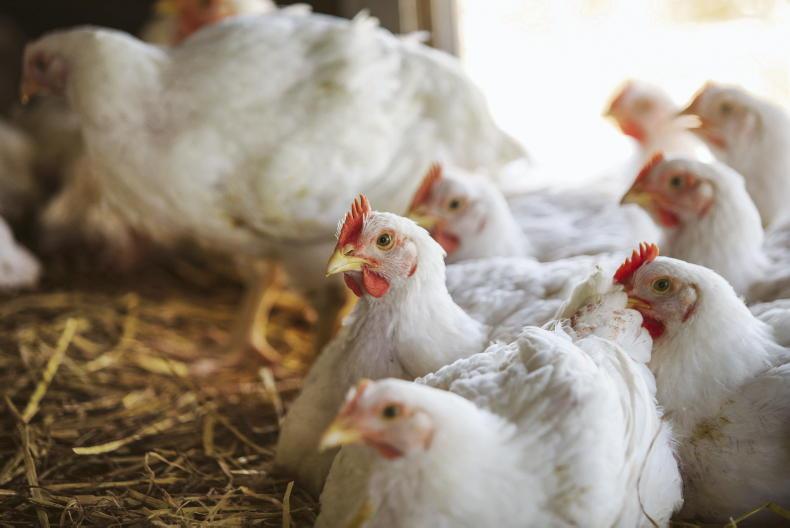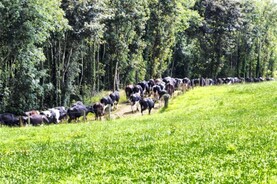The threat of bird flu has increased this week, with many poultry farmers now taking precautions.
The Department has received a large number of reports about sick and dead wild birds recently, it told the Irish Farmers Journal on Wednesday.
It said that since July, over 80 wild birds were submitted to its laboratories for testing. Of these, almost 60 positive avian influenza cases were confirmed, all subtype H5N1. The birds were submitted from locations in counties Cork, Kerry, Mayo, Dublin, Donegal, Louth.
“Over the last two weeks in particular, dead Gannets have been detected at breeding colonies at sea and are now being washed ashore,” the Department said.
Speaking to the Irish Farmers Journal, IFA poultry chair Nigel Sweetman said bird flu is “spiralling in seabirds everywhere”. He said the situation is “critical now” and described how most poultry farmers are starting to take precautions.
Bird flu cases are usually seen through the winter period, with Sweetman suggesting that “it’s very early” to be seeing this many cases. The Kinsale, Co Cork, broiler grower also said that bird flu has “never been down that far south.”
Prevention
The Department of Agriculture says it is “taking a proactive approach” in dealing with the recent spike in avian influenza cases. It says it is engaged in an active campaign advising people to stay away from any dead or sick wild birds and asks that all suspect cases are reported to the nearest District Veterinary Office (DVO).
Sweetman said it’s the “backyard flocks” which are at risk of contracting bird flu now and that it is these birds that will “become anchor points” that could lead to further spread.
The IFA poultry chair said the association is calling for additional funding for biosecurity infrastructure for poultry farmers under TAMS III. He said the funding is needed for wheel washers and improved biosecurity fencing, all of which he says, will come at a cost to farmers already experiencing increased input costs.
The Department says it is working closely with colleagues in the Department of Agriculture, Environment and Rural Affairs in Northern Ireland (DAERA), other European countries, the National Parks and Wildlife Service (NPWS), Health Protection Surveillance Centre (HPSC) and Health Service Executive (HSE) regarding avian influenza.
Farmers
Avian influenza (H5N1) is highly infectious to birds and poultry owners, and keepers of captive birds are urged to maintain the highest standards of biosecurity to protect their flocks.
Poultry farmers are asked by the Department to prevent access by wild birds to areas where poultry are kept, including feeding and watering stations, ensure yards are kept clean and tidy and feed bins are secure. The Department also said flock keepers should ensure that their clothes and footwear are clean and free from visible dirt and regularly wash hands before and after contact with poultry.
Further information on the locations of positive avian influenza cases is available at www.gov.ie/birdflu.
The Department is also implementing an awareness programme including regular disease updates for farmers. Concerned flock owners can request to be added to this disease update system by emailing ndcc@agriculture.gov.ie.






 This is a subscriber-only article
This is a subscriber-only article










SHARING OPTIONS: